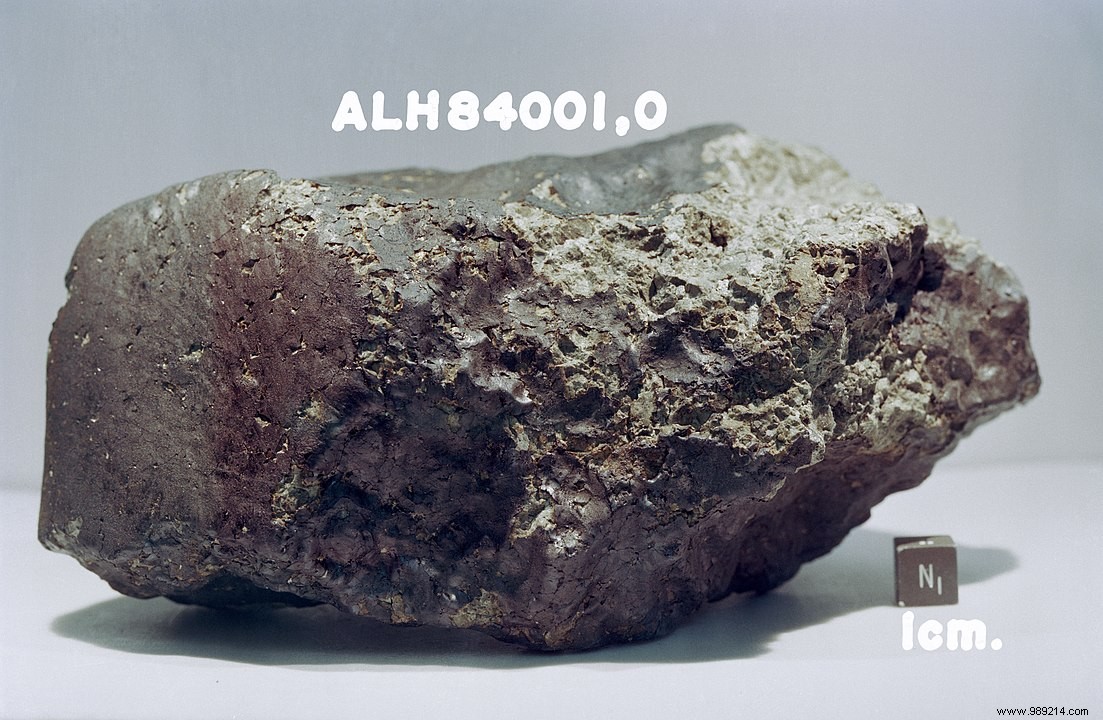According to a study, recent analyzes of organic molecules isolated in a Martian meteorite crashed on Earth 13,000 years ago are not signs of life. In reality, these compounds are the result of chemical reactions between water and rock about four billion years ago, shortly after the formation of the red planet.
Organic compounds are compounds in which one of the constituent chemical elements is carbon, with some exceptions. They may also contain oxygen, nitrogen, sulfur and other elements. These compounds are often associated with life, but they can also form due to so-called "abiotic", or non-biological, activity.
Previous work has already detected numerous organic molecules in Martian rocks, notably in the famous meteorite Allan Hills 84001 , discovered in the Allan Hills in Antarctica in 1984. This Martian stone is said to have been ejected from the red planet following an impact about seventeen million years ago, before finally ending its journey on Earth there. is around 13,000 years old.
So far, the origins of these compounds have always been controversial. Possible explanations include abiotic factors, such as volcanic activity or cosmic impacts, but also biotic factors, including possible ancient Martian life or terrestrial contamination. A new study finally closes the debate.
As part of this work published in Science, the researchers looked at the mineralogy of rock at the nanometric scale. They eventually discovered that the organic compounds inside were associated with serpentine-like minerals . It is a dark green, sometimes mottled mineral associated with formerly humid environments.
According to the researchers, the formation of these organic molecules would have involved two geochemical processes. The first, called serpentinization , occurs when circulating water interacts with igneous rocks rich in iron or magnesium. Serpentinization changes their chemical composition, releasing hydrogen.
The other interaction, carbonation , involves rocks that react with slightly acidic water containing dissolved carbon dioxide to form carbonate minerals. Here, researchers believe the organic compounds formed when volcanic rock interacted with brackish fluids early in Mars' history.
It is not yet known whether these two processes occurred simultaneously or not. On the other hand, this is the first time that their combined effects have been discovered on the same rock.

For researchers, the analysis of origin of the minerals in this meteorite could serve as a window to reveal both geochemical processes occurring early in Earth's history and Mars' potential for habitability.
"These types of non-biological geological reactions are indeed responsible for a pool of organic carbon compounds from which life could have evolved and represent a signal of background that must be considered when looking for evidence of past life on Mar s," says Andrew Steele of the Carnegie Institution for Science.